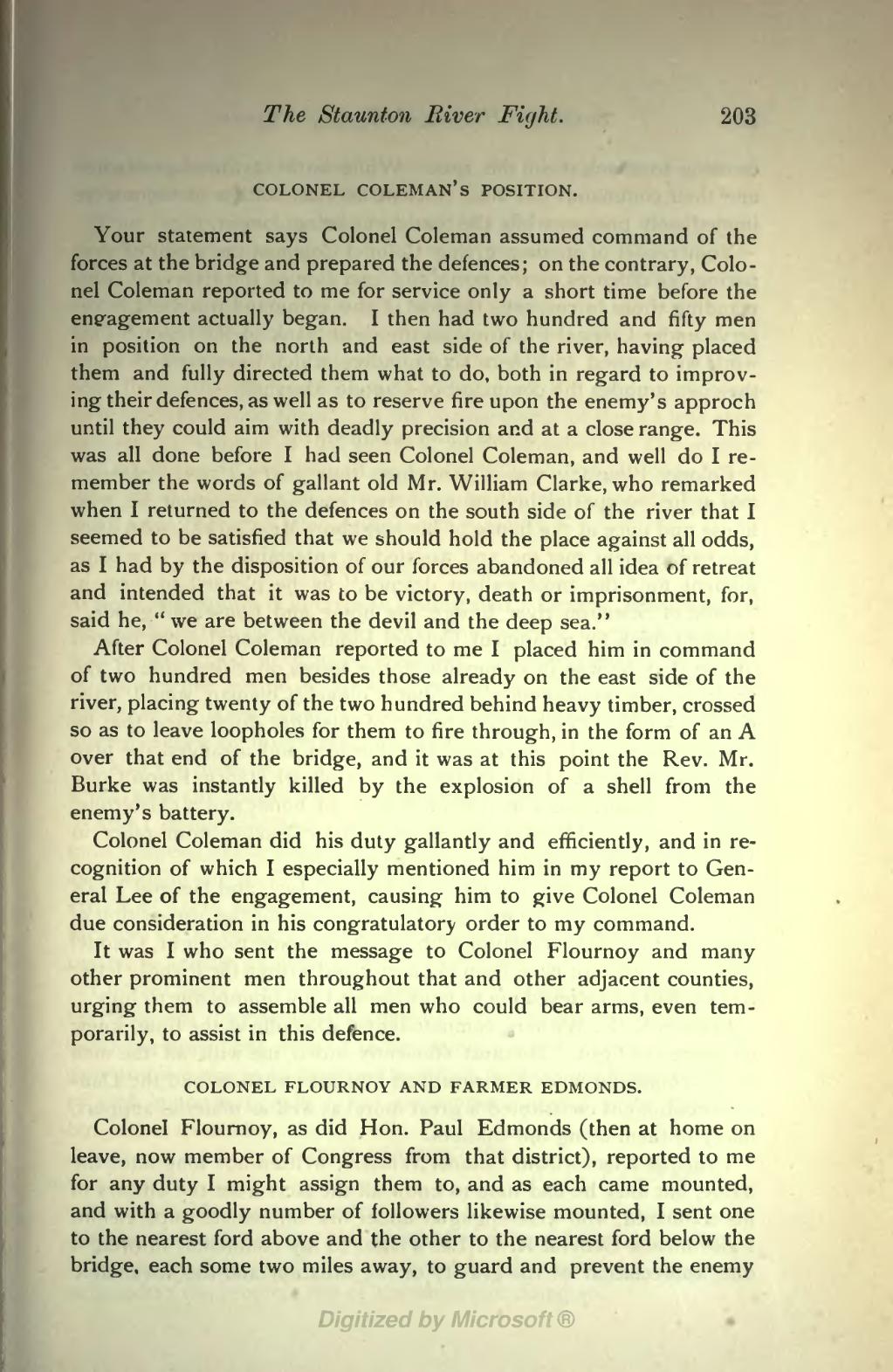The Staunton River Fight. 203
COLONEL COLEMAN'S POSITION.
Your statement says Colonel Coleman assumed command of the forces at the bridge and prepared the defences; on the contrary, Colo- nel Coleman reported to me for service only a short time before the engagement actually began. I then had two hundred and fifty men in position on the north and east side of the river, having placed them and fully directed them what to do, both in regard to improv- ing their defences, as well as to reserve fire upon the enemy's approch until they could aim with deadly precision and at a close range. This was all done before I had seen Colonel Coleman, and well do I re- member the words of gallant old Mr. William Clarke, who remarked when I returned to the defences on the south side of the river that I seemed to be satisfied that we should hold the place against all odds, as I had by the disposition of our forces abandoned all idea of retreat and intended that it was to be victory, death or imprisonment, for, said he, " we are between the devil and the deep sea."
After Colonel Coleman reported to me I placed him in command of two hundred men besides those already on the east side of the river, placing twenty of the two hundred behind heavy timber, crossed so as to leave loopholes for them to fire through, in the form of an A over that end of the bridge, and it was at this point the Rev. Mr. Burke was instantly killed by the explosion of a shell from the enemy's battery.
Colonel Coleman did his duty gallantly and efficiently, and in re- cognition of which I especially mentioned him in my report to Gen- eral Lee of the engagement, causing him to give Colonel Coleman due consideration in his congratulatory order to my command.
It was I who sent the message to Colonel Flournoy and many other prominent men throughout that and other adjacent counties, urging them to assemble all men who could bear arms, even tem- porarily, to assist in this defence.
COLONEL FLOURNOY AND FARMER EDMONDS.
Colonel Flournoy, as did Hon. Paul Edmonds (then at home on leave, now member of Congress from that district), reported to me for any duty I might assign them to, and as each came mounted, and with a goodly number of followers likewise mounted, I sent one to the nearest ford above and the other to the nearest ford below the bridge, each some two miles away, to guard and prevent the enemy
